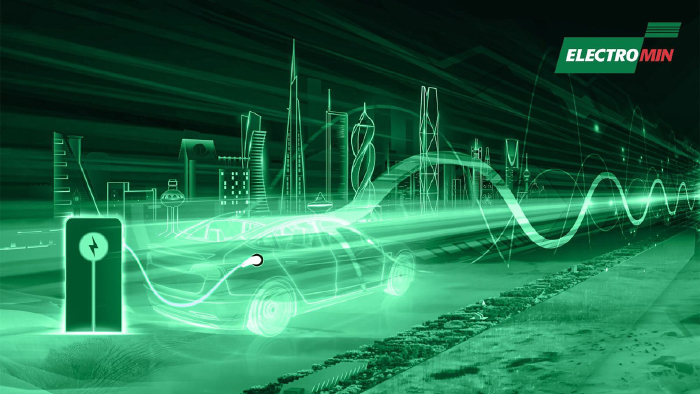In a further boost to promote e-mobility in the Kingdom, Electromin, a smart-mobility solutions provider under Petromin Corporation, has announced the rollout of additional DC chargers to be installed across key locations in the country, establishing charging corridors connecting major cities.
These DC chargers will be added to Electromin’s existing network of +100 AC chargers across the Kingdom, installed in 2022. Electromin’s customer-centric mobile application backs up the charging network and is currently free to charge for the public.
We’re also the first company in KSA to offer a public charging solution using SASO-approved chargers. Electromin’s charging network provides a complete spectrum of services – from AC home/office chargers to DC ultra-fast chargers, catering to B2B and B2C segments. The company aims to support EV drivers by reducing their concerns around range anxiety and promoting this positive change in driving behavior and lifestyle choices.
Commenting on the new roll-out, Kalyana Sivagnanam, Group CEO of Petromin Corporation, said, “We are very proud to launch the Kingdom’s first public DC charging network. The number of chargers and their rollout will be determined by customer demand and electric vehicle sales.”
Excited about the expansion of Electromin’s EV charging network, Tony Mazzone, Director Energy & EV Infrastructure, said, “We are delighted to expand our network across the Kingdom with the implementation of DC chargers. Aligned with Saudi Vision 2030, Electromin’s vision is to enable e-mobility in the Kingdom of Saudi Arabia. This expansion will further boost EV adoption.
The first of its kind in the country, our DC chargers typically would be able to add 150km of range in 15 minutes, depending on the vehicle type.
Electromin offers multiple technology-orientated eMaaS solutions contributing to the development of the Saudi EV ecosystem and in line with the national priorities and commitments of achieving net-zero greenhouse gas emissions by 2060 and 30% of vehicles in Riyadh being electric by 2030.


COMMENTS